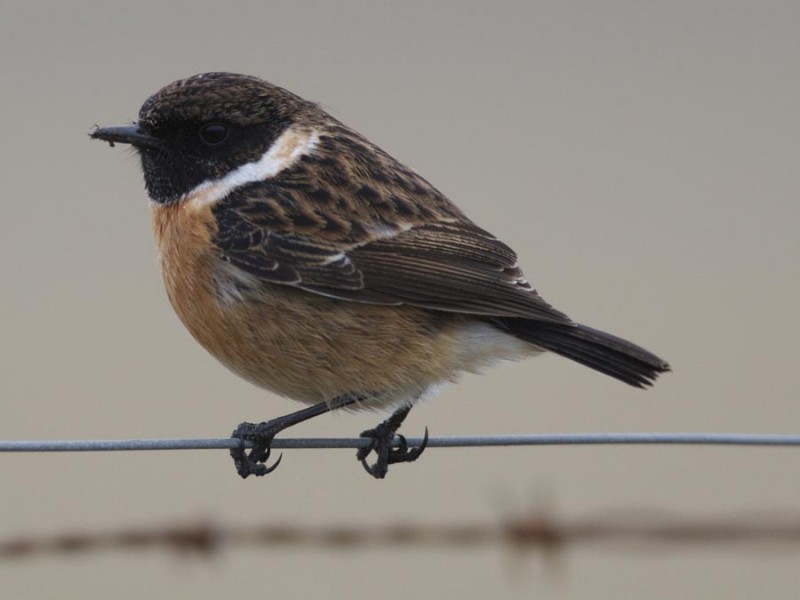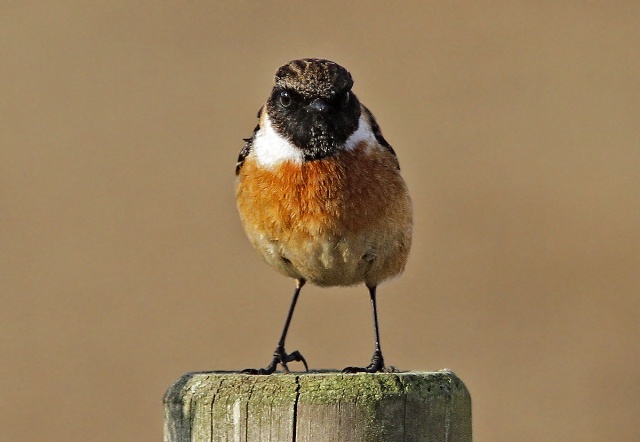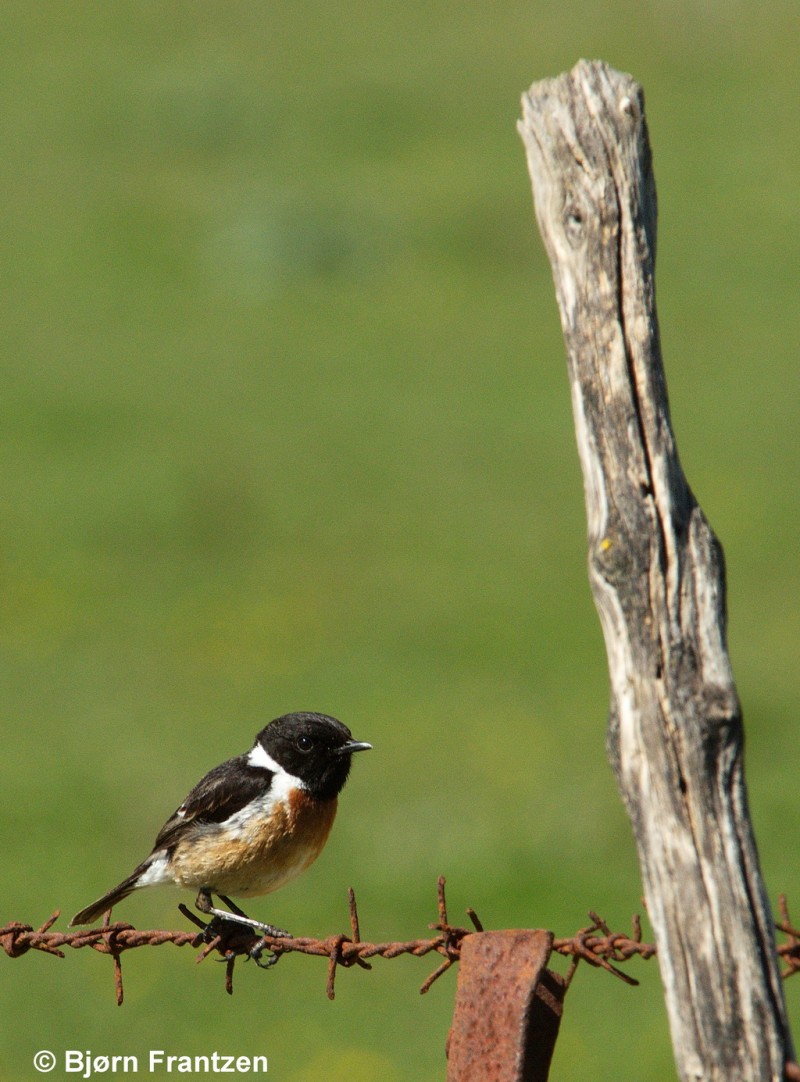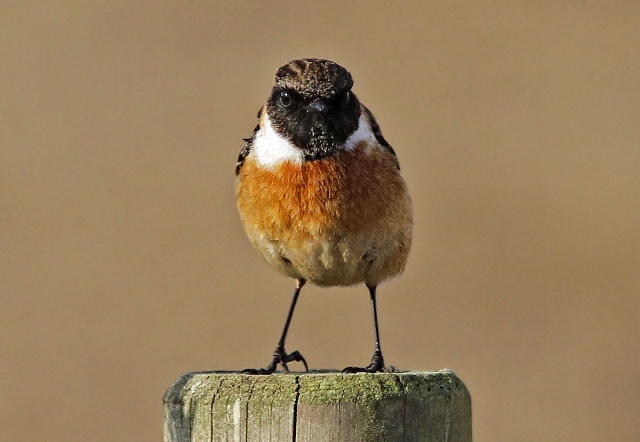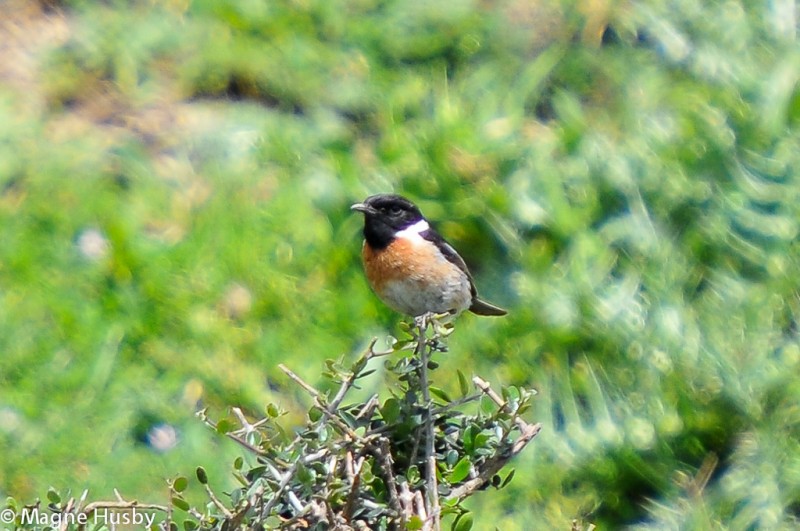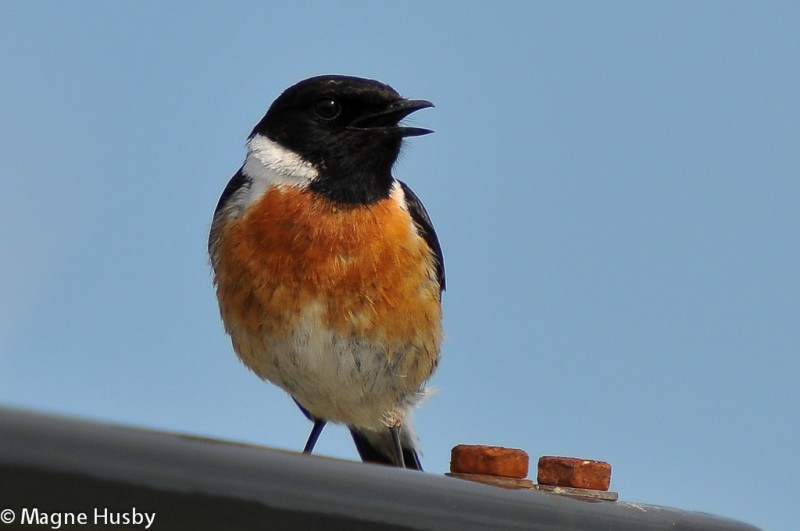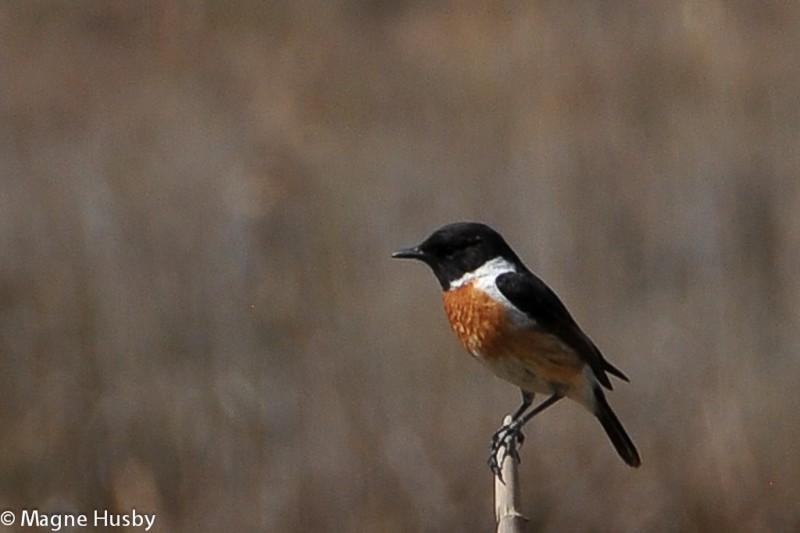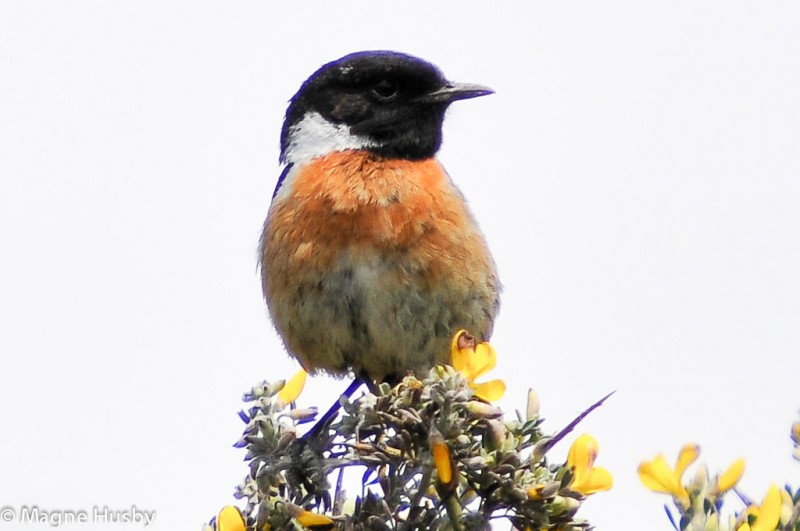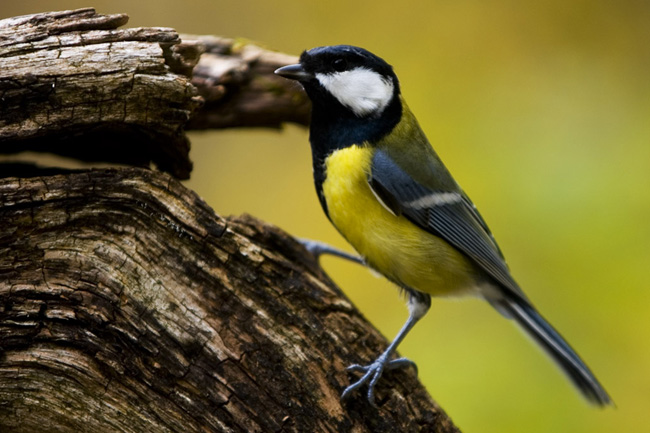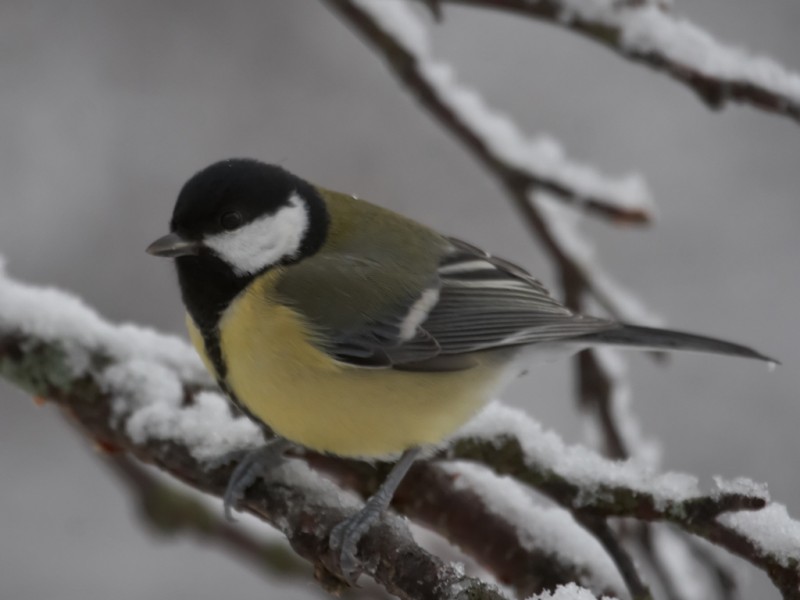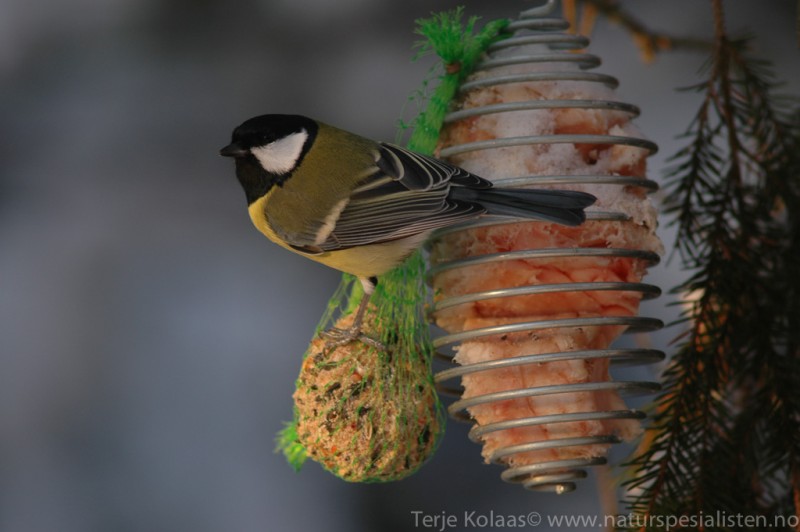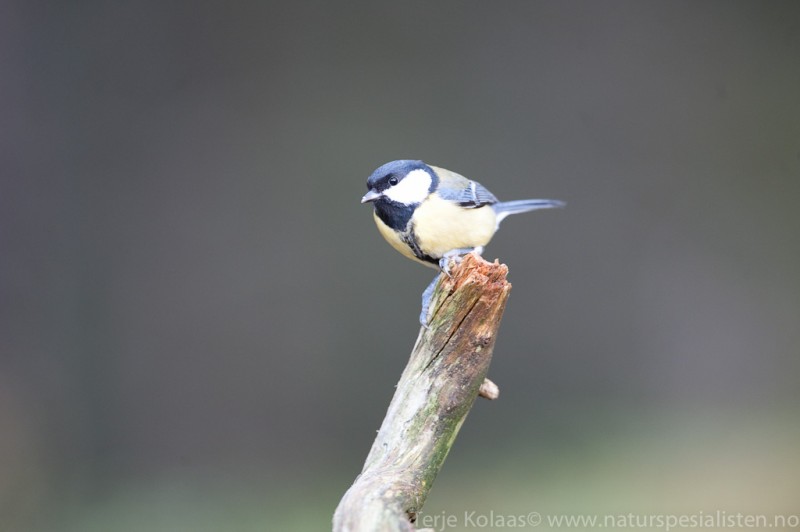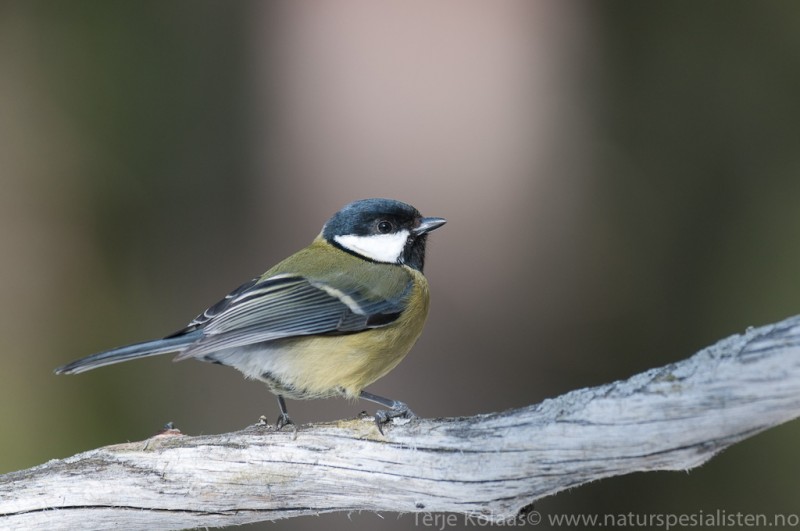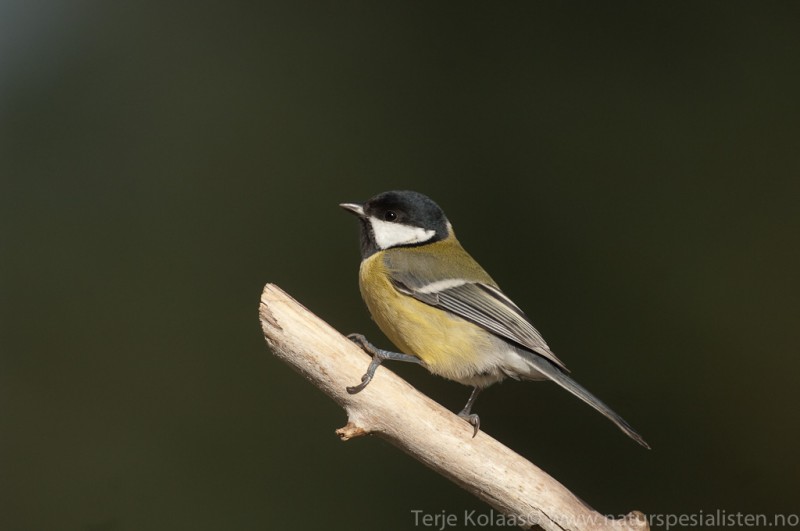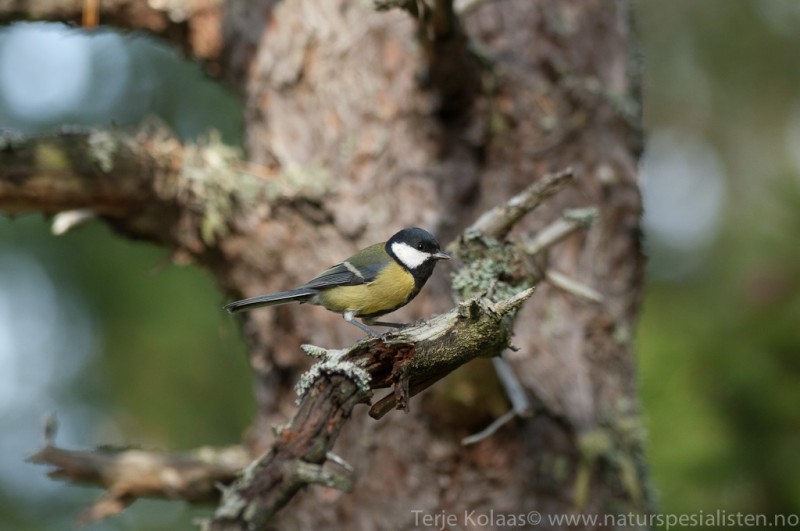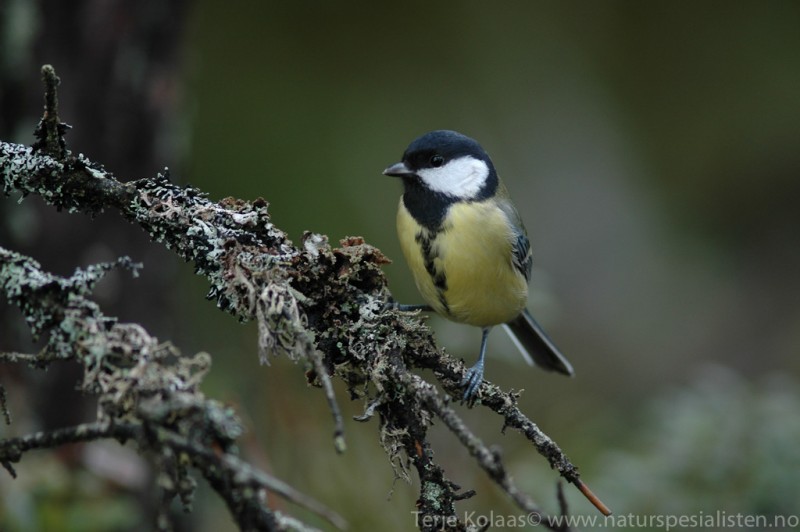Stonechat (Saxicola rubicola)
Great Tit (Parus major)
Quite similar to Whinchat all plumages lack the strong pale supercilium. Male easily identified by its mainly black and white plumage, black throat and white half-collar. Other plumages seem much more evenly coloured than the Whinchat's, with its more pronounced streaking. Adult females also with diffuse black throat, but this becomes paler as the plumage is worn. All plumages show white patch at base of wing in flight. Rump usually streaked, but sometimes has a white center, or can even be completely white. Juveniles like female, but with streaked underparts. Always restlessly on the move with frequent dipping of tail.
Sound:Alarm call an alternation of a high-pitched "weet" and a hard "check", like other chats. The "weet" is much higher pitched than the similar call of Whinchat, and Stonechat repeats the "check" more frequently. The song is a sweet stream of scratchy notes. Much more even, and less chattering than the Whinchat. Almost like a short and scratchy Dunnock phrase.
Song:
Distribution:
Xeno-canto: map
Ecology:Birdlife ecology
Links:
Observation.org Latest observations
Image search Flickr NB! May give other species
CCCombination of striking black and white head and yellow underparts makes it rather unmistakable. Back greenish, tail and wings bluish. Outer tail feathers white. Sexes alike except for wider black belly-stripe in males. Biggest tit.
Sound:Song highly variable, but usually consisting of two to three notes repeated in a motif. Same birds have many different motifs but generally repeat them many times before switching. Identified by its timbre and often metallic resonant quality, more than by actual phrasing (which is very variable). Often includes buzzing sounds in song. Generally more full-bodied and resonant calls than blue tit, and not so high-pitched. Characteristic Chaffinch-like "tink tink tink" often uttered by male.
Song:
Distribution:
Wikipedia: map (se also Xeno-canto below)
Ecology:Birdlife ecology
Links:
Observation.org Latest observations
Image search Flickr NB! May give other species
CC
 English
English Albanian
Albanian
 Armenian
Armenian
 Bulgarian
Bulgarian
 Catalan
Catalan
 Croatian
Croatian
 Czech
Czech
 Danish
Danish
 Dutch
Dutch
 Finnish
Finnish
 French
French
 Georgian
Georgian
 German
German
 Greek
Greek
 Hungarian
Hungarian
 Italian
Italian
 Latvian
Latvian
 Lithuanian
Lithuanian
 Macedonian
Macedonian
 Norwegian
Norwegian
 Polish
Polish
 Portuguese
Portuguese
 Romanian
Romanian
 Russian
Russian
 Sami : Lule sami
Sami : Lule sami
 Sami : North sami
Sami : North sami
 Sami : South sami
Sami : South sami
 Scientific names
Scientific names
 Serbian
Serbian
 Spanish
Spanish
 Swedish
Swedish
 Ukrainian
Ukrainian


